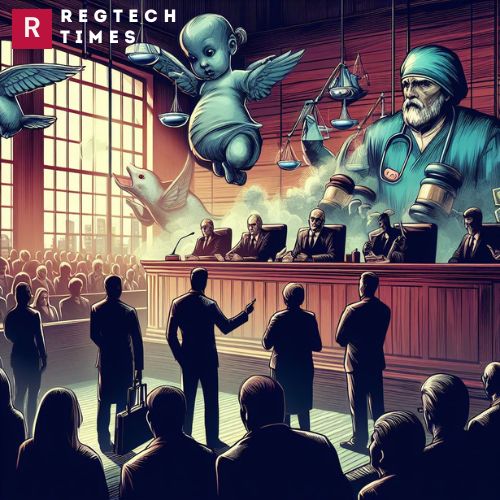The recent resentencing of Aleksandr Pikus, a New York man involved in a multimillion-dollar health care kickback and tax evasion scheme, has shed light on the pervasive issue of fraud within the health care industry. Pikus’ case is a reminder of the lengths to which some individuals will go to exploit vulnerable systems for personal gain, ultimately jeopardizing the integrity of vital health care programs and burdening taxpayers.
Background Information
Health care kickbacks, the illicit practice at the heart of Pikus’ scheme, involve the exchange of financial incentives for patient referrals, a practice prohibited by law due to its potential to influence medical decision-making and inflate costs. Medicare and Medicaid, the primary targets of such schemes, are government-funded programs designed to provide essential health care services to eligible individuals, making them particularly susceptible to fraudulent activity. Moreover, the intricate nature of these programs and the sheer volume of transactions make them difficult to monitor effectively.
The Scheme Orchestrated by Aleksandr Pikus
Aleksandr Pikus masterminded a complex scheme to exploit Medicare and Medicaid by referring beneficiaries to healthcare providers in exchange for illegal kickbacks. These providers then submitted millions of dollars in false claims for services rendered to these beneficiaries, perpetuating a cycle of deceit and manipulation. Pikus and his associates went to great lengths to launder the proceeds of these fraudulent claims, employing shell companies and falsified invoices to conceal their illicit activities. The scheme not only defrauded taxpayers but also compromised the quality of care received by vulnerable individuals seeking medical treatment.
Legal Proceedings and Resentencing
Despite Aleksandr Pikus’ initial conviction in 2019, his case faced a series of legal challenges, culminating in the overturning of his conviction on appeal. However, justice prevailed when Pikus was reindicted in January 2023 and subsequently pleaded guilty to conspiracy charges related to health care kickbacks and tax evasion. His resentencing to nine years in prison and a staggering $39 million in restitution underscores the severity of his crimes and sends a clear message that perpetrators of health care fraud will be held accountable for their actions.
Law Enforcement Efforts and Collaboration
The successful prosecution of Pikus would not have been possible without the diligent efforts of law enforcement agencies such as the Justice Department’s Criminal Division, IRS Criminal Investigation, and the Department of Health and Human Services Office of Inspector General. Through collaborative investigative efforts, these agencies were able to unravel the intricacies of Pikus’ scheme and bring him to justice. The case also highlights the importance of ongoing collaboration between law enforcement and regulatory agencies in combating healthcare fraud and protecting the integrity of vital public programs.
Implications and Future Directions
The resentencing of Aleksandr Pikus serves as a wake-up call for the healthcare industry and policymakers alike. It underscores the urgent need for strengthened regulatory oversight, enhanced fraud detection mechanisms, and harsher penalties for those who seek to exploit the system for personal gain. Moreover, it highlights the critical role of technology in preventing fraud and promoting transparency within the healthcare sector. Moving forward, concerted efforts must be made to root out fraud at its source and safeguard the integrity of essential healthcare programs for the benefit of all stakeholders.
Conclusion
The resentencing of Aleksandr Pikus for his role in a multimillion-dollar health care fraud and tax evasion conspiracy is a significant milestone in the ongoing fight against fraud within the healthcare industry. His case serves as a sobering reminder of the devastating impact of fraudulent schemes on taxpayers, beneficiaries, and the integrity of public programs. As we reflect on Aleksandr Pikus’ crimes and their repercussions, we must renew our commitment to combating healthcare fraud and protecting the fundamental principles of honesty, integrity, and accountability within our healthcare system.



